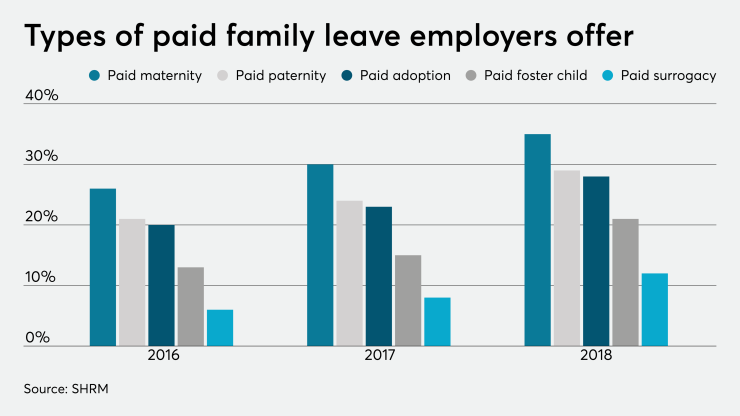When the bipartisan defense spending bill is signed into law this week, the U.S. will become the last rich country on earth to provide federally mandated paid family leave. While it only affects about 2 million government workers, this is a welcome, long-overdue step. And the real work is just beginning.
For nearly three decades, the Family and Medical Leave Act has given certain employees 12 weeks of unpaid leave for birth or adoption, or addressing serious medical needs. Even this minimal baseline was tough to establish: The
It makes sense that some bosses would bristle at the idea of shelling out paychecks to absent workers. But a growing body of research indicates that offering family leave doesn’t actually hurt the bottom line, and may even pay off in the long run. Just look at how things have played out in California. It’s one of a handful of states, including New Jersey and Rhode Island, that opted to offer its own paid family-leave program in the absence of a federal standard. More than 90% of companies surveyed in
While paying for temporary coverage and medical benefits can add up, recruitment is also expensive. Replacing an employee who leaves can cost a business about 20% of that worker’s salary, according to the Center for American Progress. The probability a first-time mother quits her job after giving birth is
In passing this legislation, the government has set a bright red line for businesses to meet and surpass; just
But there’s more to be done. The bill offers 12 weeks, which is low for a wealthy nation like the U.S. A majority of countries give mothers
Some companies already offer generous policies. Netflix Inc.’s may be the most unusual among them: “Our parental leave policy is: ‘take care of your baby and yourself,’” according to the company’s
The idea of paid leave is
When you consider the staggering cost of infant care in the U.S., it’s easy to see why. In my home state of New Jersey, for example, families spend an average of
Generous parental leaves from banks and tech giants can help relieve this burden for those lucky enough to be employed there, but most Americans aren’t working on Sand Hill Road or Wall Street. And well over 100 million people don’t work for Uncle Sam, either. That's why the next logical step would be to expand the federal policy to the millions of employees it doesn’t include.






